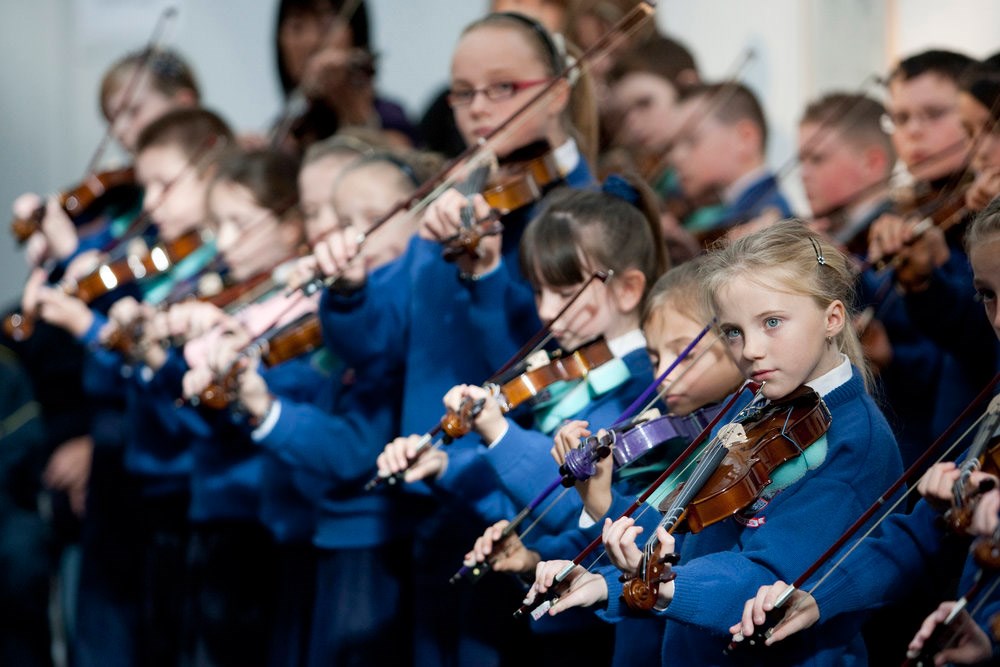A chamber orchestra is a small orchestra consisting of about 25 players, used for the authentic performance of baroque and early classical music, as well as modern music written specifically for a small orchestra.
Student chamber orchestras are beneficial is countless ways. They foster a collaborative environment for learning, helping students to develop verbal communication skills, non-verbal communication skills, team building skills, leadership skills, and much more!
The hours a child spends practicing alone build a lot of strengths, including self-discipline, but the time spent among other children working together towards producing beautiful sound help a youngster find his or her place in the world.
“Music,” wrote Plato, “is a more potent instrument than any other for education.” What wise elders knew intrinsically 25 centuries ago has by now been thoroughly documented by modern science. The benefits of playing a musical instrument on child development are as wide reaching as they are profound.
Neuroscientists have shown that playing music actually changes a child’s brain structure, enhancing auditory discrimination, fine motor skills, vocabulary, and non-verbal reasoning. Time spent learning music strengthens memory capacity, increases coordination, ingrains habits of self-improvement, furthers emotional development, and boosts confidence. Studies show that students who play music far outperform their non-musical peers in academic testing.
Playing in a band or orchestra, like team sports, gives kids challenges that they overcome together while also developing the individual initiative of choosing an instrument, participating in an environment with social complexities, and succeeding through practice and repetition.
